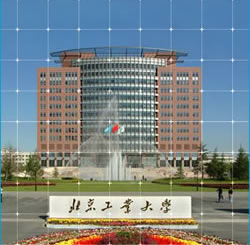 |
|
登录注册 |
| ☦ 北京工业大学论坛│北京工业大学bbs│平乐园bbs > 留学频道 > 浏览当前帖子 | 手机版 - 认证发帖 - 隐藏左侧栏 |


|
| GMAT阅读“Ecoefficiency”文章深度分析 | |
| 【返回本版】 【发表帖子】 【回复帖子】 | 浏览量 1184 回帖数 0 |
 |
都雨天 等级 瓶子 楼主 发表于 2012/7/6 18:06:08 编 辑 |
|
|
阅读建议: 1) 北京新东方建议读者先按自己的节奏阅读文章并做完题目,再看文章分析及题目讲解。 文章及题目: Ecoefficiency (measures to minimize environmental impact through the reduction or through elimination of waste from production processes) has become a goal for companies worldwide, with many realizing significant cost savings from such innovations. Peter Senge and Goran Carstedt see this development as laudable but suggest that simply adopting ecoefficiency innovations could actually worsen environmental stresses in the future. Such innovations reduce production waste but do not alter the number of products manufactured nor the waste generated from their use and discard; indeed, most companies invest in ecoefficiency improvements in order to increase profits and growth. Moreover, there is no guarantee that increased economic growth from ecoefficiency will come in similarly ecoefficient ways, since in today's global markets, greater profits may be turned into investment capital that could easily be reinvested in old-style eco-inefficient industries. Even a vastly more ecoefficient industrial system could, were it to grow much larger, generate more total waste and destroy more habitat and species than would a smaller, less ecoefficient economy. Senge and Carstedt argue that to preserve the global environment and sustain economic growth, businesses must develop a new systemic approach that reduces total material use and total accumulated waste. Focusing exclusively on ecoefficiency, which offers a compelling business case according to established thinking, may distract companies from pursuing radically different products and business models. 1. The primary purpose of the passage is to (A) explain why a particular business strategy has been less successful than was once anticipated (B) propose an alternative to a particular business strategy that has inadvertently caused ecological damage (C) present a concern about the possible consequences of pursuing a particular business strategy (D) make a case for applying a particular business strategy on a larger scale than is currently practiced (E) suggest several possible outcomes of companies' failure to understand the economic impact of a particular business strategy 2. The passage mentions which of the following as a possible consequence of companies' realization of greater profits through ecoefficiency? (A) The companies may be able to sell a greater number of products by lowering prices. (B) The companies may be better able to attract investment capital in the global market. (C) The profits may be reinvested to increase economic growth through ecoefficiency. (D) The profits may be used as investment capital for industries that are not ecoefficient. (E) The profits may encourage companies to make further innovations in reducing production waste. 3. The passage implies that which of the following is a possible consequence of a company's adoption of innovations that increase its ecoefficiency? (A) Company profits resulting from such innovations may be reinvested in that company with no guarantee that the company will continue to make further improvements in ecoefficiency. (B) Company growth fostered by cost savings from such innovations may allow that company to manufacture a greater number of products that will be used and discarded, thus worsening environmental stress. (C) A company that fails to realize significant cost savings from such innovations may have little incentive to continue to minimize the environmental impact of its production processes. (D) A company that comes to depend on such innovations to increase its profits and growth may be vulnerable in the global market to competition from old-style eco-inefficient industries. (E) A company that meets its ecoefficiency goals is unlikely to invest its increased profits in the development of new and innovative ecoefficiency measures. 1.文章初读:(本文只有一段,所以先读首句和末句以了解文章大意) 首句:Ecoefficiency (measures to minimize environmental impact through the reduction or elimination of waste from production processes) has become a goal for companies worldwide, with many realizing significant cost savings from such innovations. 评:给出了文章的核心概念Ecoefficiency(注意括号里的内容,对于理解ecoefficiency大有帮助),提到生态效益成为世界各地公司的目标和它的作用。 末句: Focusing exclusively on ecoefficiency, which offers a compelling business case according to established thinking, may distract companies from pursuing radically different products and business models. 翻译:将目光局限于生态效益--根据既有的思维,它提供了一个引人入胜的商业案例--可能使公司分心,不再追求完全不同的产品和商业模式。 评:读该句,应该注意几个词:exclusively, established, distract…from,这句实际上是指出过分强调ecoefficiency可能带了的问题:公司可能由于追求同一个目标ecoefficiency而日趋同质化。从这两句话可以看出,本文开头引出ecoefficiency,陈述其被奉为目标的事实,而最后指出过分注重ecoefficiency可能引发的问题。可以推测本文应该是对ecoefficiency进行比较全面评价的文章。 2.文章精读(精读各句,把握逻辑关系) 标记重要逻辑关系词及态度评价词 Ecoefficiency (measures to minimize environmental impact through the reduction or through elimination of waste from production processes) has become a goal for companies worldwide, with many realizing significant cost savings from such innovations. Peter Senge and Goran Carstedt see this development as laudable but suggest that simply adopting ecoefficiency innovations could actually worsen environmental stresses in the future. Such innovations reduce production waste but do not alter the number of products manufactured nor the waste generated from their use and discard; indeed, most companies invest in ecoefficiency improvements in order to increase profits and growth. Moreover, there is no guarantee that increased economic growth from ecoefficiency will come in similarly ecoefficient ways, since in today's global markets, greater profits may be turned into investment capital that could easily be reinvested in old-style eco-inefficient industries. Even a vastly more ecoefficient industrial system could, were it to grow much larger, generate more total waste and destroy more habitat and species than would a smaller, less ecoefficient economy. Senge and Carstedt argue that to preserve the global environment and sustain economic growth, businesses must develop a new systemic approach that reduces total material use and total accumulated waste. Focusing exclusively on ecoefficiency, which offers a compelling business case according to established thinking, may distract companies from pursuing radically different products and business models. 翻译:随着许多公司意识到这些革新带来的显著的成本节约,生态效益(通过减少或消除来自生产过程的废弃物以最小化对环境的影响的方法)已经成为世界各地公司的目标。Peter Senge和Goran Carstedt认为这个发展值得赞赏,但认为仅仅简单地运用生态效益革新事实上会使未来的环境压力更大。这种革新减少了生产废弃物,但是并没有改变生产产品的数量以及在他们使用和丢弃过程中产生的废弃物;确实,大多数公司为改进生态效益而投资是为了增加利润和公司成长。此外,并不能保证来自生态效益的经济增长会以类似的高生态效益的方式到来,因为在当今的全球市场,更高的利润可能会转变为投资资本,而投资资本很容易被再投资于老式的低生态效益产业当中。即使是一个生态效益更高的产业系统,如果它增长得过大,也会比缺生态效益更低的小型经济产生总量更大的废弃物并且破坏更多的栖息地和物种。Senge和Carstedt争论说为了保护全球环境,保持经济增长,企业必须发展一种新的系统的方法以减少原料使用总量和累计废弃物总量。将目光局限在生态效益上--根据既有的思维,它提供了一个引人入胜的商业案例--可能使公司分心不在追求完全不同的产品和商业模式。 读完文章后,可做如下笔记,整理各句大意及句间关系: eco. = reduce waste eco.→cost saving PS&GC: simply = worsen Ө not alter no. & use & disg.Ө moreover, reinvest ' ineco.Ө even eco.↑→total waste↑Ө Need new approach exclusively eco.Ө |
||
| 1 |
| 论坛帮助 会员认证删帖申请 联系我们 |
